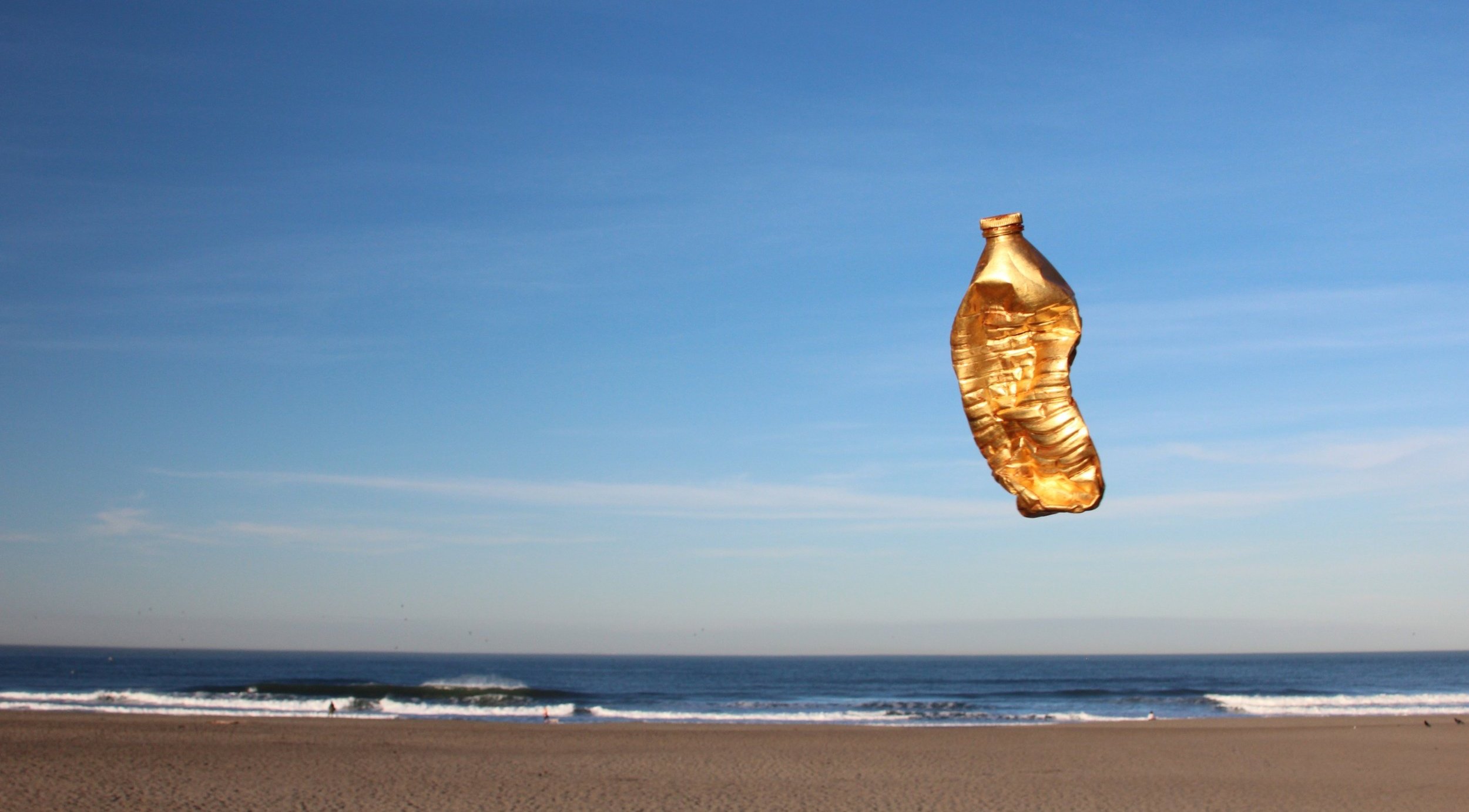
Aquaria of the Plastocene
Artwork Addressing the Plastic Crisis
A Virtual Exhibit
Gallery of Aquaria
-
2050
23 Kt Gold Leafed Plastic Bottle and Vintage Fish Bowl
2050 is the year that it’s estimated we will have more plastic than fish in our oceans if we don’t cut back our plastic use
-

Crystal Geyser Collection
Nine 24 Kt gold leafed plastic Crystal Geyser water bottles in aquarium
Crystal Geyser happened to be the most common brand of plastic water bottles I found as litter. The EPA estimates that about 9% of our plastic waste is recycled in the US. The remainder goes to landfills or incineration, where they emit greenhouse gases and other toxic emissions. And of course, some end up in the ocean.
-

Wishcycling
24 Kt gold leafed plastic waste and blue plastic recycling bin
Wishcycling is when people put things in the recycling bin that they hope will be recycled. Just because something has the chasing arrows doesn’t mean it can or will be recycled. None of the containers in this artwork are typically recycled—they consist of #5 (yogurt tub), #6 (sushi trays), #7 plastic (Florida’s Natural orange juice) and a Starbucks cup (layered paper and plastic—not recyclable or compostable).
-

The New Coal
24 Kt Gold Leafed plastic water bottles and vintage coal scuttle 11 x 20”
Plastic is made from fossil fuels, and the US is in the process of bringing 42 new plastic refineries online. According to the oil industry’s own greenhouse gas emissions data, this is like adding 27 new coal plants. Most of these plastic refineries are situated near low income communities, like the notorious Cancer Alley in Louisiana.
-

Coke or Pepsi?
Gold Coca-Cola bottles, Silver Pepsi Bottles, Glass Aquarium 36 x 9 x 11”
Coca-Cola wins the gold and Pepsi takes the silver as the two leading plastic polluters in the world.
-

Grab-N-Go
23 Kt gold leafed non-recyclable single-use food items, wood and plexiglass counter case
These single use items are all made from plastic that is not recycled. Despite the chasing arrows sign on the bottom of the #5 plastic containers in this display, #5 plastic is almost never recycled in the US. The coffee bag and food wrappers have plastic linings and are not recyclable either. They will end up in landfills, incinerators, and the ocean.
These items may be convenient, but are they really affordable? Perhaps up front, but the long term costs of disposal and environmental damage are much higher.
-
Forever Peanuts
23 Kt Gold leafed styrofoam peanuts in vintage Japanese Aquarium
Styrofoam peanuts are not biodegradable or recyclable, and can last in the environment for hundreds of years. Because these are small, lightweight and float they can be easily mistaken for food by marine life. Hopefully one day they will be a relic of the past.
-
-



